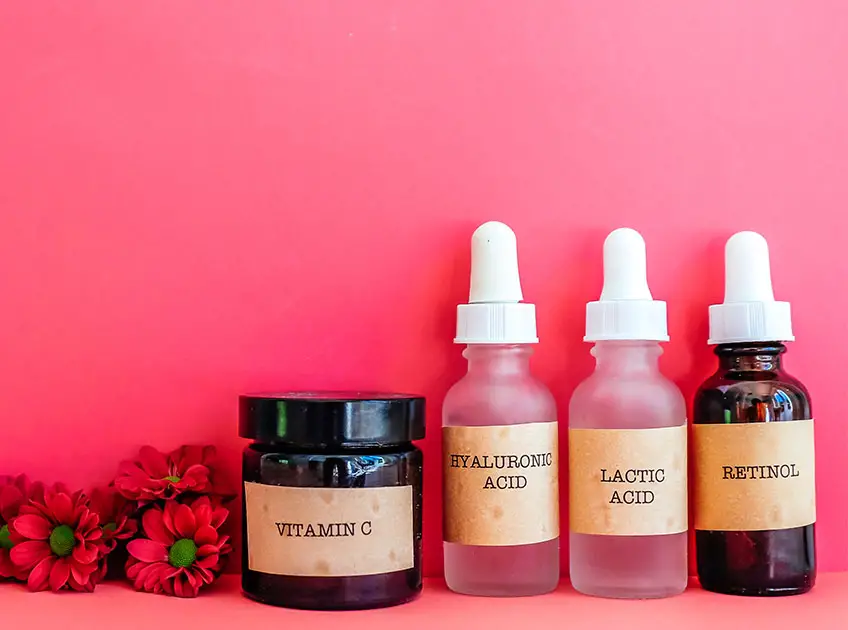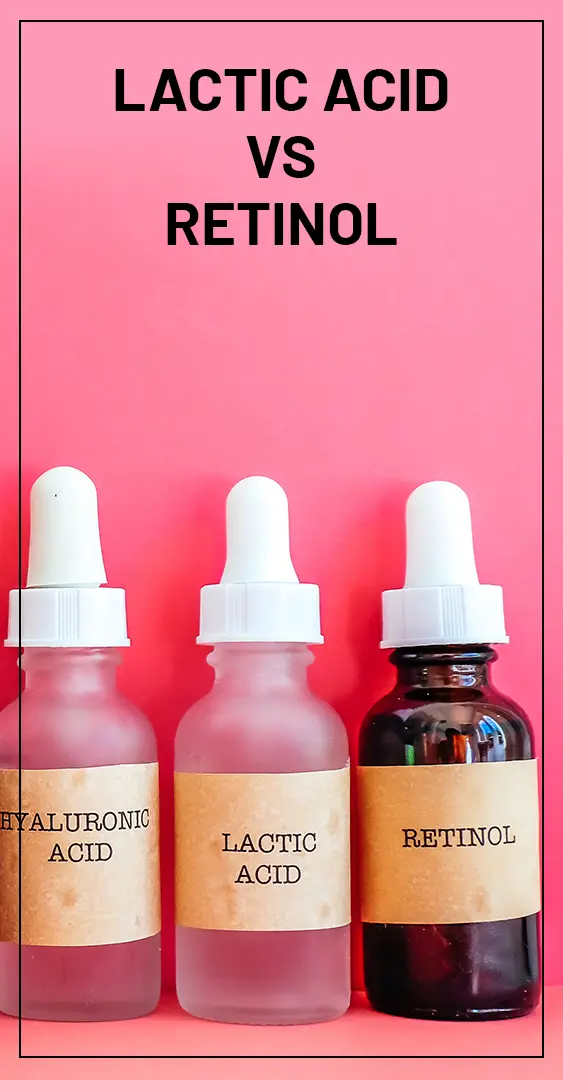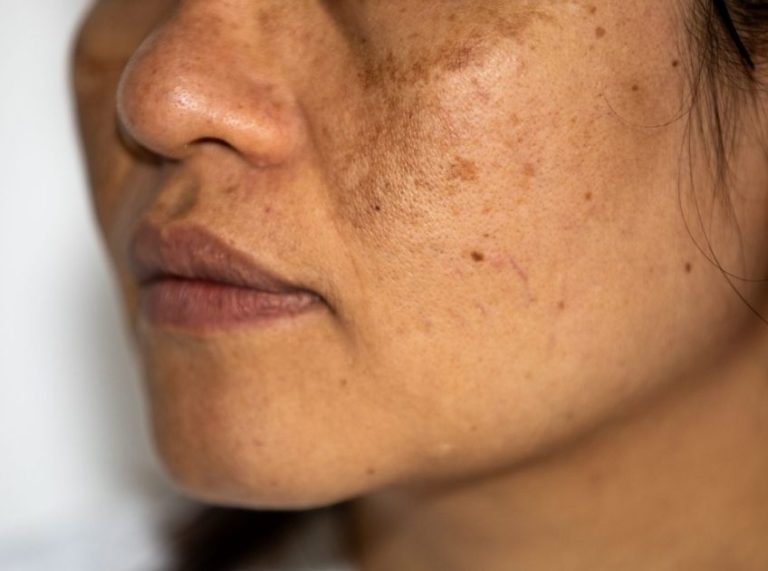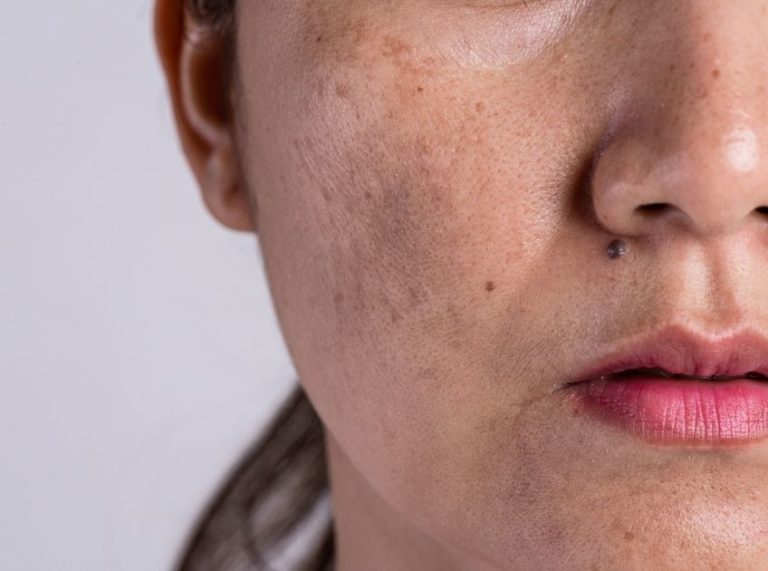
Important: This article is for informational purposes only. Please read our full disclaimer for more details.
When it comes to a skincare routine, both chemical exfoliants and retinoids are considered essential but it is hard to tell which is more important. If you are not able to decide which is vital and whether you can use both- lactic acid and retinoid together, this article will help. Keep reading to know everything about these two amazing skincare products.
Lactic Acid
Lactic acid is an alpha hydroxyl acid (AHA). It is made from lactose- a type of sugar found in milk. Lactic acid is naturally present in the skin which means using it moisturizes the skin even more and makes it soft and supple.(1)
People with dry skin can benefit from lactic acid immensely. Due to its soothing and gentle formulation and hydrating properties, it is preferred over glycolic acid- another important skincare ingredient.
Apart from hydrating the skin and moisturizing it, lactic acid also exfoliates the skin. It removes the calcium ions from the skin that are responsible for holding the dead skin cells together. When lactic acid is applied to the skin, it weakens the bond created by calcium ions and dead skin cells, allowing easy exfoliation.
Other Benefits Of Lactic Acid-
- Delays aging signs like fine lines and wrinkles(2)
- Improve skin tone and texture
- Helps to brighten and tighten the skin
- Reduces enlarged pores
Retinol
Retinol is a form of Vitamin A and one of the major ingredients in the majority of skincare products. When retinol comes in contact with skin, it penetrates deep and converts into retinoic acid- an active form of retinol. It can treat a wide range of skin conditions as it is proven scientifically to enhance the skin on a cellular level, therefore often prescribed by dermatologists.(3)
Apart from delivering Vitamin A to the skin, retinol is also an anti-oxidant that increases the rate with which new skin cells are made. By hastening the process of new cell formation, retinol moves the dead cells to the skin’s surface in order to be shed.
Other Benefits Of Retinol-
- Boosts collagen production
- Acts as anti-inflammation
- Reduces acne scarring
- Unclogs pores
- Treats acne
- Prevents melanin production and thus reduces pigmentation
- Increases skin cell turnover
- Improves skin texture and tone by reducing fine lines and wrinkles
Even though there are plenty of benefits of retinol, it often causes skin irritation to people with sensitive skin. When used in incorrect ways, retinol can also lead to multiple skin conditions and make the existing skin conditions worse. Therefore, the application of retinol in the right ways as preferably as directed by the dermatologist is essential.(4)
The good news is, that retinol takes fewer conversions to reach its active form, therefore, it is less irritating than other retinoids like differin, retinal, tretinoin, etc.
Lactic Acid Vs. Retinol
If we compare these two super amazing skincare ingredients, it becomes hard to decide which is better than the other.
Lactic acid and retinol- both increase the rate of skin cell turnover. It means they enhance the natural exfoliation process of the skin, however in different ways. While retinol increases the new skin cells production and the speed with which they travel the skin surface, lactic acid weakens the bond that binds the dead skin cells to the skin, helping to shed them faster.
Therefore, we can say that retinol and lactic acid complements each other and when used together do wonders for the skin. They act as a catalyst in improving each other’s effects.
Both hydrate the skin and make them deeply nourished and well-moisturized. Lactic acid aids in drawing water from the skin cells and ensures the skin looks soft and supple. Retinol, on the other hand, promotes the production of hyaluronic acid in the skin.
Is It Okay To Use Lactic Acid And Retinol Together?
While layering different skincare products as a beauty regime, the application of lactic acid and retinol together is one of the major concerns. People are afraid that a combination of these two potent ingredients causes skin irritation.
Some common issues that you can experience are-
- If you have dry and sensitive skin, the application of both the products together can cause skin irritation.
- You can experience skin peeling and flaking.
If you have experienced the same, we would recommend using both the products alternatively. For people with normal skin, using a combination of these two ingredients will not cause any harm.
Retinol and lactic acid are skin staples. However, using them in the correct ways is essential. You can use lactic acid- a chemical exfoliant not more than 1 to 3 times a week and retinol- one time per day to get the maximum benefits of both.
You Might Also Like:
- How to Get Clear Skin Naturally at Home
- The 7 Best Homemade Natural Skin Care Recipes
- The Best Skin Care Routine For Your 30s
- How To Get Rid Of Built-Up Dirt On Skin?



















